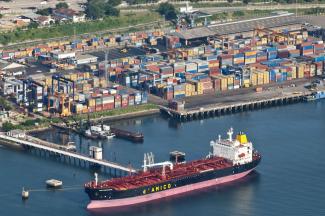Editorial
Playing with fire

Trade is an important driver of development. History shows that poor countries need export opportunities to generate employment, incomes and new opportunities. The globalisation of trade has thus contributed massively to reducing poverty in emerging markets. China is the most spectacular, but not the only example. Least developed countries definitely need a liberal trade order.
While trade benefits all economies involved, however, it does not automatically benefit every person. Inequality has been increasing unacceptably in many places. As Paul Collier, the prominent development economist from Oxford University argues, policymakers have failed to spread the gains of globalisation fairly at the nation-state level. In his view, the current backlash against multilateralism thus results from a failure to make the most of its benefits at national levels.
Given that economic relations increasingly transcend borders, we should probably consider international regulations to limit and reduce inequality. It is bizarre, moreover, that we have no rules on international data flows in spite of their fast growing relevance. The greatest global challenge, of course, is to stop environmental destruction (see D+C/E+Z briefing "Global environment in crisis"). Yes, the existing system of global governance needs to be improved, but no, dismantling the international trade order will not make it better.
The current escalation of tariff disputes and protectionism is distracting the global public from more urgent issues. Our top leaders should be focusing on achieving the Sustainable Development Goals (SDGs) the UN has adopted in the 2030 Agenda. Instead, the global agenda is being set by irrational nationalists. The great irony is that the trade tensions will make all economies involved worse off. No nation will become “great” by turning its back on cooperation. It is mildly encouraging that, so far, not much dismantling has taken place. The reason is that trade is beneficial and a great diversity of stakeholders has a lot to lose. Governments normally avoid hurting constituents, and that has a bearing on trade diplomacy.
Accordingly, the new United-States-Canada-Mexico Agreement was negotiated fast to replace the North American Free Trade Area (NAFTA) has brought incremental change, not massive disruption. In a similar way, the US-Chinese trade talks may yet result in viable compromise. That might also happen should Trump decide to impose additional tariffs on the EU. A majority of British members of Parliament seem determined to manage Brexit in a way to limit economic disintegration.
Nonetheless, brinkmanship in trade affairs is dangerous. Damaged trust takes a long time to repair. Perhaps the greatest risk is that some trade disputes overlap with military concerns. That is the case in the Middle East or the South China Sea, for example. Undermining multilateral agreements means to play with fire.
Hans Dembowski is editor in chief of D+C/E+Z.
euz.editor@fazit-communication.de








